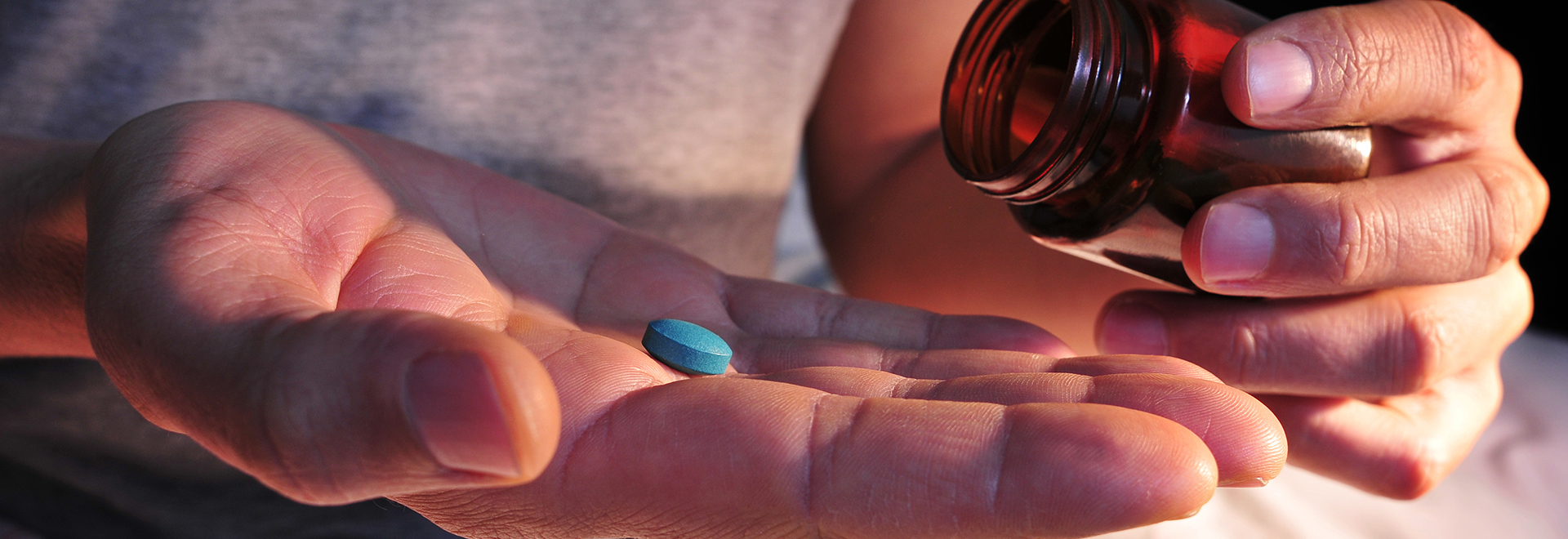As shown by CUHK research in 2020, 68% of Hong Kongers suffered from insomnia and 40% of the population underslept with less than 6 hours of sleep per day. To sleep better at night, many would take sleeping pills before going to bed. However, do you understand the potential risks and side effects of the drugs? Let’s get to know more about this medication with Cigna Smart Health in this article.
Principles, Types and Functions of Sleeping Pills
Most of the sleeping pills are categorised as sedative-hypnotic drugs for inducing sleep or staying asleep. However, the medications can only relieve insomnia symptoms but cannot eliminate the causes. Generally speaking, the effects of sleeping pills are short-termed. Therefore, to deal with insomnia, you should find out the reasons and receive respective treatments.
Below are the common types of sleeping pills available in Hong Kong:
- Benzodiazepines (BZDs): They are depressants that enhance the effect of the neurotransmitter gamma-aminobutyric acid (GABA). All benzodiazepines can cause addiction, dependence and have a downside on memory and concentration. It is suggested that the treatment using benzodiazepines is as short as possible and not longer than four weeks.
- Another common sleeping pill is Zopiclon. It increases the normal transmission of GABA in the central nervous system. Therefore, it provides hypnotic, anti-anxious effects and it causes memory loss as well. Zopiclon has fewer side effects of “hangover”. The treatment is also suggested to be no longer than four weeks.
- Zolpidem produces less anti-anxious and muscle relaxation relatively but its treatment should not be over four weeks as well.
- Antihistamine - like Promethazine. It is sedative that the sleepiness could last till another day. Do not drive or operate machinery if you feel drowsy or your mental alertness is impaired after taking your anti-allergy medicines.
- Chloral Hydrate can also provide sedation and hypnotization effects. After use, do not drive or operate machinery. Chloral Hydrate was used as a common sedative years ago until its carcinogenic risk was discovered.
When Should You Take Sleeping Pills?
Sleep latency, sleep interruption and sleep-wake disorder are the symptoms of insomnia.
Many factors in daily life contribute to insomnia, such as ageing, unfavourable environment (e.g. noise, light), anxiety, stressful life events (e.g. job changes, death), medical conditions (e.g. prolonged ache and cough) and medication (e.g. stimulant drugs, asthma drugs).
If your short-termed or occasional insomnia is caused by the above factors, you could start by cultivating good sleep habits, such as doing regular exercise, having a balanced diet, avoiding alcohol and caffeine intake and creating a quality sleep environment.
However, you should visit your doctor to find out the causes of insomnia if the condition persists in four consecutive weeks after trying the aforementioned adjustments. It is not recommended to take sleeping pills without medical advice and prescription.
Common Side Effects of Sleeping Pills
Individuals who consistently take sleeping pills may develop drug tolerance, addiction and dependence. Even if you stop taking sleeping pills, the withdrawal may lead to abstinence. Therefore, it is highly recommended to have the medicines in the lowest possible dosage with the shortest period.
Sleeping pills also come up with side effects, as many drugs do. The types and extent of side effects differ among individuals. The following are the common side effects of sleeping pills.
- Burning or tingling in the hands, arms, feet, or legs
- Changes in appetite
- Constipation
- Diarrhoea
- Dizziness
- Prolonged drowsiness and impairment on the next day
- Dry mouth and throat
- Headache
- Over excitement
- Daytime memory and performance problems
- Stomach pain
- Uncontrollable shaking of a part of the body
- Unusual dreams
You should clearly understand the names and dosage of the sleeping pills you are using. If any side effects are observed, you should stop using and seek medical advice to avoid leading to serious health issues.
FAQs on Sleeping Pills Intake
- Who should not take sleeping pills?
- Sleeping pills disrupt your breathing. It may be risky for those with asthma and chronic lung diseases.
- Individuals with drug allergies should consider carefully before taking the pills, as the medications may cause anaphylactic shock and severe facial swelling (angioedema).
- Is it dangerous to take sleeping pills with alcohol?
Yes. Mixing alcohol and sleeping pills can have additive sedating effects from both drugs, and the combination can cause someone to stop breathing, which could cause death.
- Can you eat grapefruit while taking sleeping pills?
You should not eat grapefruit or drink grapefruit juice while taking some sleeping pills (benzodiazepines). Grapefruit increases the amount of the drug absorbed into your bloodstream and how long it stays in the body that can cause over-sedation.
Purchase of Sleeping Pills
In Hong Kong, most of the pharmaceutical products available for the treatment of insomnia, including sleeping pills, are prescription-only medicines that can only be obtained from a pharmacy with a prescription given by a doctor.
How Can You Sleep Better Without Sleeping Pills?
Regardless of the insomnia symptoms you are having, you need to make some effort to raise your quality of sleep. Let’s take a look at Cigna’s tips to improve your sleep quality and say goodbye to the sleepless nights.
Cigna 360° Well-being Survey unveils that nearly everyone is stressed in Hong Kong (92%). Stress adversely affects not only sleep quality, but also mental and physical health. Apart from exercising, finding a hobby and having a balanced diet, you should seek advice from the professionals if the stress is too much to take on.
Consult your preferred doctor with ease by using Cigna Telehealth Service at home. Describe your symptoms, upload relevant photos and discuss with your general practitioner or specialist using video conference at home. Without making a trip to a clinic, you could get a specialist referral, doctor’s certificate and even prescribed medication delivered on the same day to your doorstep.

